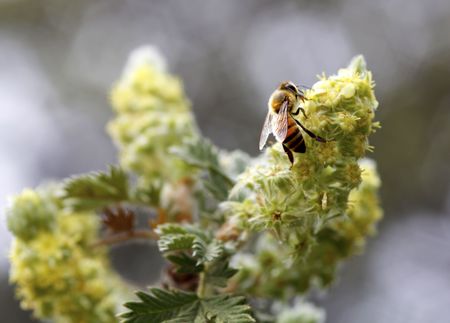A Woman Survived 100 Africanized Bee Stings
June 29, 2017
There are fewer things scarier than a sudden attack you have not been anticipating, placing you out of control of a situation to the point that you start to panic. According to one nurse, Barbara Strmiska, out of Corsicana, Texas, she was not attacked by any one person or large animal—she was attacked by an entire swarm of Africanized honey bees. Africanized bees, which are a hybrid breed of the docile European or Italian honey bees and the more aggressive African “killer” bees, are more common in the United States than they once were, especially in the southwest and southern regions. And Corsicana, a town 60 miles south of Dallas, is right near the center.
How It Happened
Strmiska, who was casually mowing her lawn in early May, was unaware that her home’s water meter box was hosting a swarm of Africanized bees. The swarm was likely the former half of a larger hive that had to split in half just to survive. Strmiska had assumed the vibration she felt was from her mower before feeling stings on her lip and finding herself in the middle of the defensive swarm of bees.
"It seemed like there were hundreds of them just all around me," Strmiska said. "There were a couple times when I just felt that I wanted to lay on the ground in a fetal position, but I knew I had to keep moving. It was very terrifying." Knowing she had to stay calm, Strmiska ran to the street in search of help. Her neighbor found her, hosed her body down, and let her inside. Believing the bees gone, Strmiska went back outside but was swarmed yet again. She would later learn the bees followed her due to a scent or an odor—something that marked her as a danger to the hive.
The Dangers of Africanized Bees
Strmiska was ultimately brought to the hospital, having suffered over 100 stings, with the worst in one of her eyes. While stings from Africanized bees aren’t any more venomous than normal bee stings, victims usually have far more due to their aggressive disposition. "They can be in a water meter box, they can be in a tree, they can be in your house, they can be in a dog house," Harold Wright, owner of “Bee Safe Bee Removal,” said. Though Wright often rescues bee colonies, hives containing Africanized bees are typically killed due to the danger they pose.
For people who run into aggressive bees that may be Africanized, according to Wright, they should get inside their home or a car immediately to remove themselves from the danger. Many people assume they can spray down with water or jump into a pool to escape, but, with nothing between them and the bees’ stingers, they are not safe that way. Strmiska knows this quite well: "They're very relentless, and they just kept coming and coming. I don't know what would happen with a child or an elderly person." Regardless, Strmiska is grateful to be all right, and she now intends to alert others of the real dangers posed by Africanized bees.
Copyright: chrisalleaume / 123RF Stock Photo


.jpg)




